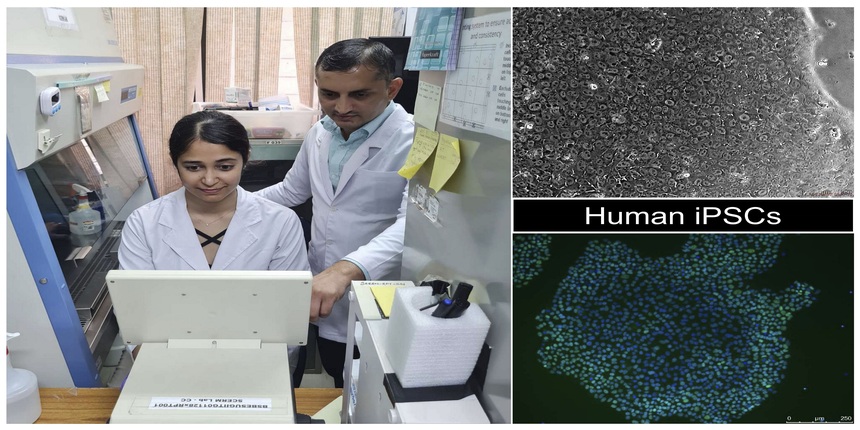IIT Guwahati, CMC Vellore develop method to convert ordinary human skin cells into pluripotent stem cells
Tanuja Joshi | August 16, 2023 | 01:54 PM IST | 2 mins read
IIT Guwahati and CMC Vellore's collaboration aligns with India's commitment to advancing stem cell research.

NEW DELHI: The Indian Institute of Technology (IIT) Guwahati researchers in collaboration with the scientists from Christian Medical College (CMC), Vellore have developed a method to convert ordinary human skin cells into pluripotent stem cells.
The research team was headed by Rajkumar Thummer, assistant professor in the department of biosciences and bioengineering at IIT Guwahati. The research will help harness the potential of stem cells for medical applications. According to the institute, the pluripotent stem cells, known as Induced Pluripotent Stem Cells (iPSCs), can be programmed to develop into various types of adult cells, offering solutions for treating a range of diseases including diabetes, cancer, paralysis, and neurodegenerative disorders like Alzheimer's.
ALSO READ| IIT Guwahati holds orientation ceremony for 2023 batch of over 2,000 students
The research paper has been published in the journal Stem Cell Research and authored by Khyati Raina, Gaurav Joshi, Kirti Modak, Chitra Premkumar, Sweety Priyanka, Praveena Rajesh, Shaji Velayudhan and Rajkumar P Thummer.
Rajkumar P Thummer, assistant professor, department of biosciences and bioengineering, IIT Guwahati, said, “The human body is made of many kinds of cells – nerve cells, heart cells, liver cells, pancreatic cells, and so on, with unique structures and functions. All these distinctive cells originate from stem cells to perform a specific function. Lack of any of this cell types in a human body will result in a disease or disorder. Thus, stem cells can be programmed to develop into mature functional cells, which can be used to replace damaged cells.”
ALSO READ| IIT Guwahati develops 3D printed device for fast diagnosis of Urinary Tract Infection
As per the IIT Guwahati’s research, the conventional methods used extracting of stem cells from embryos or specific adult tissues. The team in their latest research used a method similar to the 2012 Nobel-winning research by Shinya Yamanaka. They introduced specific genes into skin cells to reprogram them into iPSCs. According to the team it used a safe, integration-free technique that preserves the cells' genetic makeup and eliminates the risk of immune rejection.
The generated iPSCs were found to be versatile, maintaining their genetic integrity and potential to differentiate into various cell types according to the institute.
ALSO READ| IIT Guwahati, ICWA sign agreement to expand knowledge on international affairs, foreign policy
The collaboration between IIT Guwahati and CMC Vellore aligns with India's commitment to advancing stem cell research. The government, through the Department of Health Research-Indian Council of Medical Research (DHR-ICMR), supports stem cell research and has fostered initiatives like advanced research centres, thematic task forces, and iPSC generation.
Follow us for the latest education news on colleges and universities, admission, courses, exams, research, education policies, study abroad and more..
To get in touch, write to us at news@careers360.com.
Next Story
]IIT Guwahati researchers develop model to predict knee osteoarthritis from X-ray images
The AI-based model uses an efficient deep convolutional neural network (CNN) i.e an algorithm from image recognition. This model predicts knee OA severity as per the World Health Organisation approved Kellgren and Lawrence (KL) grading scale. It is built upon one of the most recent deep models, called the high-resolution network (HRNet), to capture the multiscale features of knee X-rays.
Divyansh